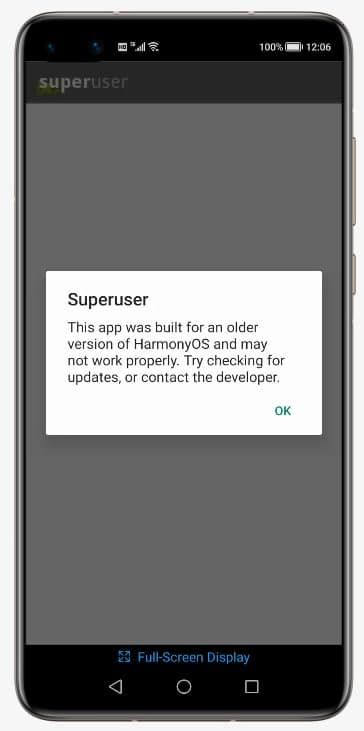Harmony OS is Huawei’s own first-party operating system, meant to take over the reins as the company’s current GMS-less Android software proves to be insufficient to propel the company’s smartphone prospects. Huawei recently began its long-shot transition away from the GMS-less Android with the first Harmony OS 2.0 beta for select smartphones and tablets. But while an independent operating system sounds like it would be great for the overall mobile ecosystem to break away from the duopoly of Apple’s iOS and Google’s Android, it seems that this first release of Harmony OS 2.0 is still based on Android after all.
One developer built a simple “Hello World” app targeting an older version of Android—specifically, Kitkat 4.4.4—and found that the app throws up a very similar error message on both Android and Harmony OS virtual devices.

Left: An Android virtual device in Android Studio running a “Hello World” app. Right: A Harmony OS virtual device in DevEco Studio running the same app.
The screenshot on the left shows the app installed on a virtual device based on a newer Android version, essentially throwing up the error that the app is built for an older version of Android and may not work properly on the new version. The screenshot on the right shows the app installed on a virtual device based on Harmony OS 2.0 beta, and the error message is practically the same, with the difference being just a simple swap-out of the word “Android” for “Harmony OS”.
XDA Senior Member hikari_calyx, known for his work on unlocking the bootloaders of Nokia phones, compiled and installed the famous Superuser app onto the Harmony OS 2.0 beta virtual device. Here’s what happened:


Furthermore, you can use ADB (Android Debug Bridge) to pass along instructions to the HOS virtual device. In doing so, one developer managed to extract most of the system partition from the virtual device, revealing the build contains the Android framework.

All of this presents an interesting conclusion: The first beta of Harmony OS 2.0 is apparently still based on Android.
Now, there are a few explanations that one can make here. One might presume that Harmony OS 2.0 is just a rebrand of Android and intends to stay that way, but we reckon that while this may be true right now, it won’t always be the case. Based on previous presentations, Huawei did mention that using AOSP would serve as a transitional step towards building its desired Harmony OS experience, essentially a way to bridge the gap for users and app developers alike. Leveraging the existing AppGallery and HMS ecosystem brings momentum, so such a transitional step would be just what Harmony OS needs to hit the road with full speed.
We could also be wrong in that there is more nuance to this release than we know of. Huawei’s press release for the launch of its Harmony OS 2.0 beta doesn’t mention Android or AOSP, but we haven’t been able to read all of the documentation or watch all of the developer videos that Huawei uploaded since it’s all in Mandarin. We’ve reached out to Huawei for comment and will update the article if we hear back from them.
The post Huawei’s initial Harmony OS 2.0 beta appears to be based on Android after all appeared first on xda-developers.
from xda-developers https://ift.tt/3hlhAMo
via IFTTT

Aucun commentaire:
Enregistrer un commentaire